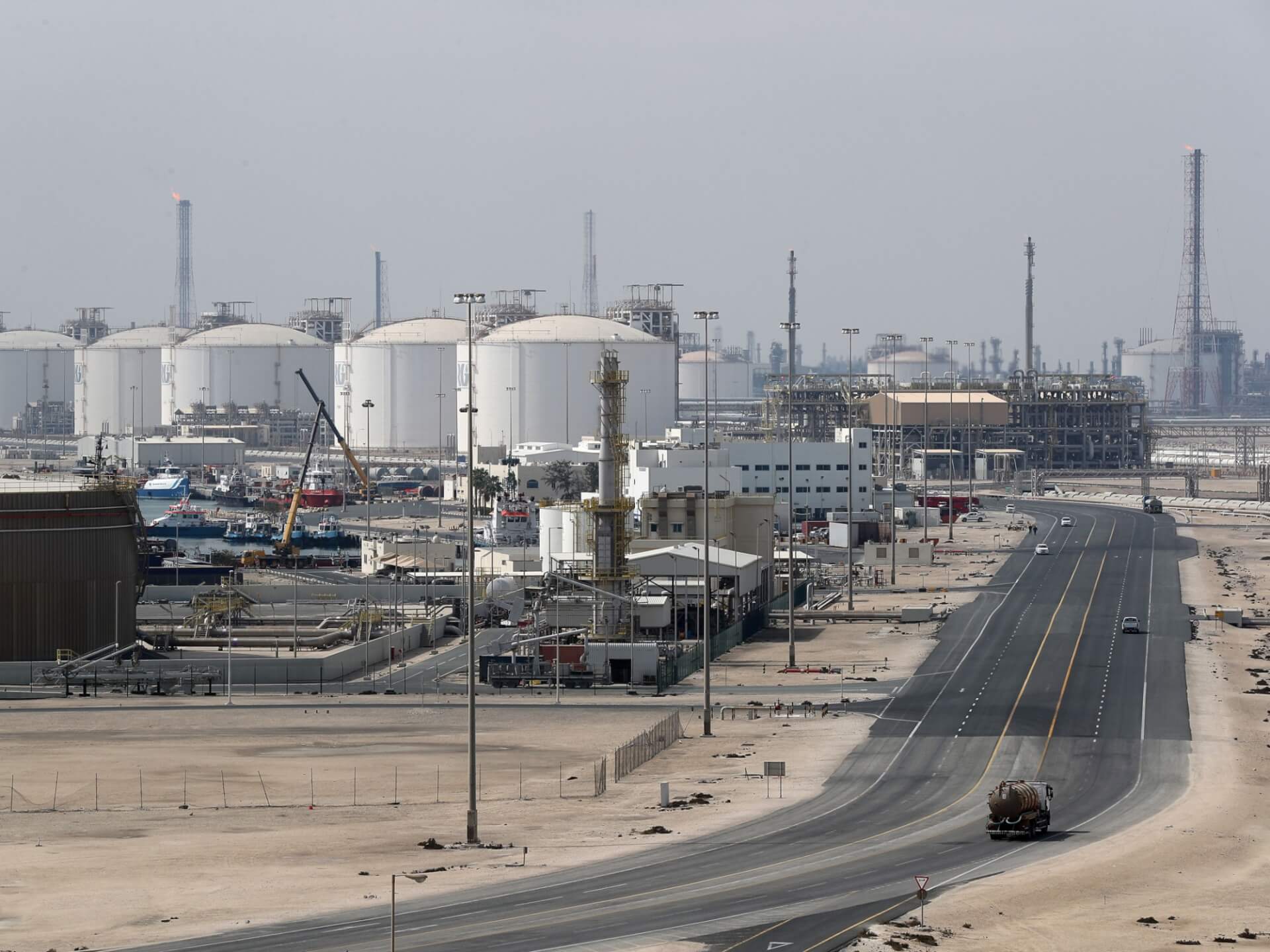German Vice-Chancellor Robert Habeck visited Qatar this past weekend to secure a gas deal in a bid to reduce dependence on Russia and address the current energy crisis in Europe. Habeck stated prior to his departure that aside from seeking independence from fossil fuels, Berlin is also seeking a “value-based” alternative to Russia, which is accused of committing various human rights violations both in Ukraine and within its own borders.
SE der Vizepremierminister und Außenminister Scheich Mohammed bin Abdulrahman Al Thani traf SE Robert Habeck, Vizekanzler und Minister für Wirtschaft und Klimaschutz der Bundesrepublik Deutschland, während seines Staatsbesuchs in Katar. pic.twitter.com/d2Jn7wmG5A
— سفارة دولة قطر-برلين (@QatarEmb_Berlin) March 21, 2022
On Sunday, Habeck met with Qatar’s emir, Tamim bin Hamad Al Thani, to discuss Germany’s immediate gas needs. The Emiri court said both sides discussed measures to promote bilateral relations, especially in the energy sector. Apart from the emir, Habeck also met with Minister of State for Energy Affairs Saad Sherida al-Kaabi.
In this respect, Germany and Qatar committed to a long-term energy partnership. A spokesperson for the German Economics Ministry in Berlin said, “The companies that have come to Qatar with [Habeck] will now enter into contract negotiations with the Qatari side.”
Germany has agreed to a long-term liquified natural gas supply deal with Qatar, with Germany's economy minister saying, 'we might still need Russian gas this year, but not in the future'.
— The Spectator Index (@spectatorindex) March 21, 2022
After years of stalled talks, Qatar said it agreed with Germany on commercial entities of both countries engaging in negotiations for long-term supplies of Liquified Natural Gas (LNG).
Justifying his trip to Doha to secure a supply of LNG on Sunday, Habeck said, “It is the Ukraine crisis that has brought me here and the attempt to get off Russian gas and oil and coal as quickly as possible.”
After Russia and Iran, Qatar has the largest reserve of natural gas and infrastructure to liquefy gas for transport. It currently supplies 30% of its LNG to the European Union (EU), but Germany doesn’t receive any since it lacks LNG terminals. In light of the disruption caused by the Russian invasion of Ukraine, Germany aims to accelerate the construction of these terminals, presumably in Wilhelmshaven and Brunsbüttel. In fact, Habeck said the LNG terminals could be operational in five years.
Berlin has been desperately trying to secure an energy deal with Doha. In fact, German Chancellor Olaf Scholz’s advisor, Jörg Kukies, met with Qatari Foreign Minister Mohammed bin Abdulrahman Al-Thani earlier this month to discuss bilateral cooperation, particularly in the energy sector. Habeck’s recent visit also aimed to rebuild trust after German President Frank-Walter Steinmeier cancelled his trip to Doha twice due to the COVID-19 pandemic and the Ukraine war.
Furthermore, following his trip to Qatar, Habeck travelled to the United Arab Emirates (UAE), with a focus on the production of green hydrogen. Crucially, the first delivery to Germany could take place this year. “A faster expansion of hydrogen supply chains is a key element for the transition to sustainable energy,” Habeck remarked.
During this tour, Habeck was accompanied by 20 German company representatives. While speaking to DW, Martina Merz, CEO of the industrial group ThyssenKrupp, said, “Habeck is doing a good job for Germany here. In my view, he sees himself in the talks as someone who wants to make connections, for the benefit of the green transformation and cooperation between countries.”
Russia is Germany’s largest gas supplier but Russia’s military actions against Ukraine and the ensuing sanctions have forced Germany to rethink its energy policy and reduce its energy dependency on Moscow. To this effect, Germany suspended Russia’s ambitious Nord Stream 2 gas pipeline, which would have significantly increased its gas supplies to Germany. However, Germany will still need to import gas from Russia for quite some time before it achieves a more diverse trade portfolio or energy independence. On March 7, the German government refused to stop buying oil, gas, and coal from Russia despite its invasion of Ukraine. Chancellor Scholz said, “Germany and Europe are too dependent on Russian energy imports for power, heating and industrial production to be able to cut trade links with Moscow in the short term.” To this end, 40% of Germany’s gas supply in 2022 has come from Russia.
Germany has agreed to a long-term liquified natural gas supply deal with Qatar, with Germany's economy minister saying, 'we might still need Russian gas this year, but not in the future'.
— The Spectator Index (@spectatorindex) March 21, 2022
However, the gas deal with Qatar and the UAE could upset Habeck’s Green Party voters and the wider German population, as Germany’s new coalition government had committed to making security, foreign, and development policy “more value-based.” Both Qatar and the UAE have been accused of human rights violations and poor working conditions by Germany.
Various countries have accused Qatar of exploiting migrants building stadiums for the upcoming FIFA World Cup. In fact, 6,500 migrant workers from Sri Lanka, Nepal, Bangladesh, Pakistan and India have reportedly died in Qatar since it won the right to host World Cup in December 2010. Aside from hazardous working conditions, many employers also have vast and extensive powers over migrant workers that restricts their movement and even their ability to leave the country. Much of the same allegations have been levelled at the UAE, where citizens form only about 12% of the population.
Therefore, many have questioned the legitimacy of Germany’s values-based approach, considering that it is simply seeking to replace one human rights abuser with two more.

